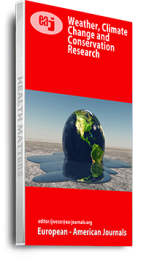This paper summarizes the current status of weather forecasting and climate prediction in Lare woreda. The characteristics and requirements of modern weather forecast operations are described briefly and the significance of numerical weather prediction for future development is emphasized. The critical tasks for short term climate prediction that covers the extended range (1530 days), monthly, seasonal, inter-annual and inter-decadal time scales are projected. The author found that Indigenous knowledge, traditional stories and prediction relating to lightning, wind direction, cloud formation, rains, drought, birds migration, animal, trees, mitigation, response, and effects of climate on crops are realistic in a contemporary environment from Nuer farmers in the woreda. The research was conducted more or less through the qualitative research methodology where Indigenous knowledge has remained the focus of anthropological study. It looks at the traditional way of life in understanding about nature, environmental conditions and effective use of resources. The overall objective of the study was to identify indigenous knowledge indicants and how they help in seasonal forecasting in the face of changing climatic conditions. The research result shows that People in the woreda acquired this perception to cope with natural stresses and solve their own problems. Recent studies indicate that the value of indigenous knowledge is becoming recognized by scientists, managers and policy makers. The various affirmation of the aged and young people claim that the scientific knowledge is more authentic and powerful than indigenous knowledge whereas in some areas, the indigenous people said that scientific knowledge is harmful based on religious background.
Keywords: Forecasting, Indigenous knowledge, climate challenge

